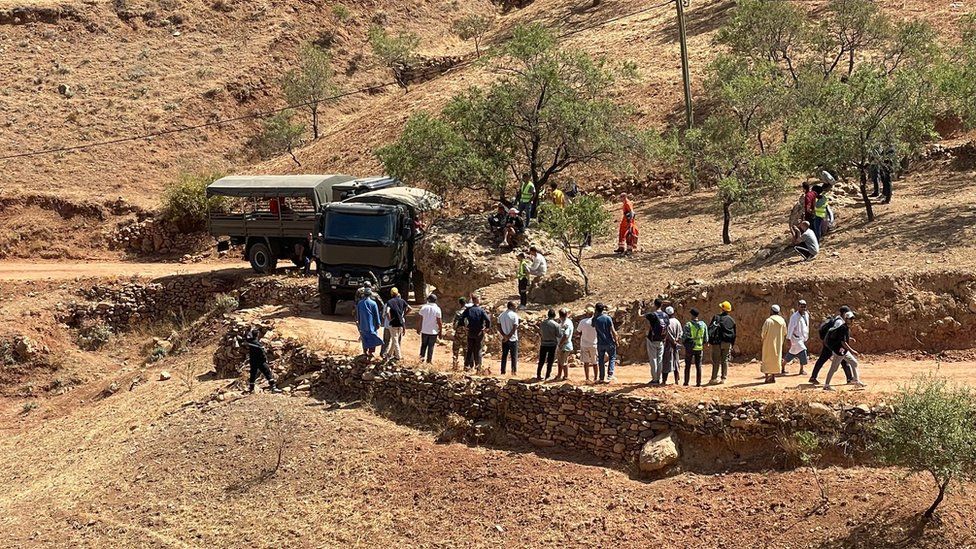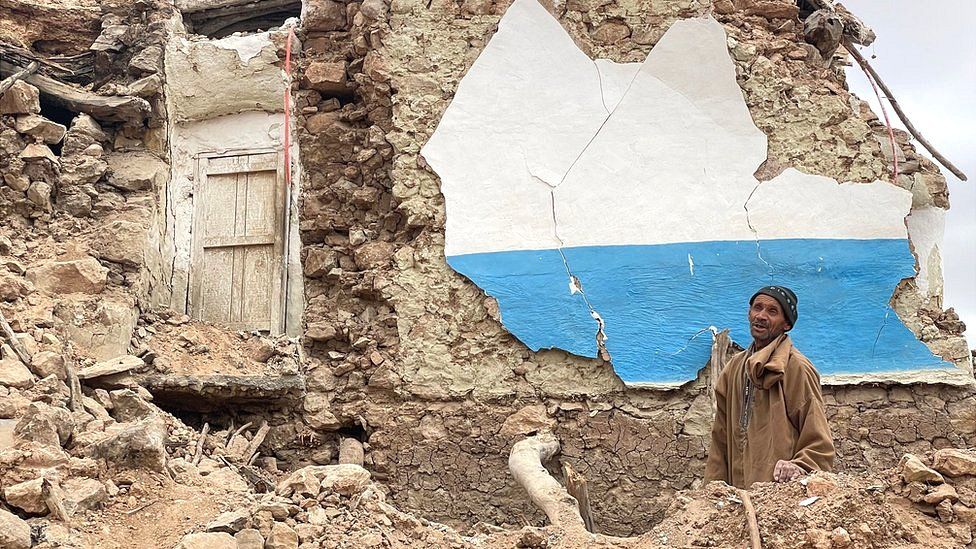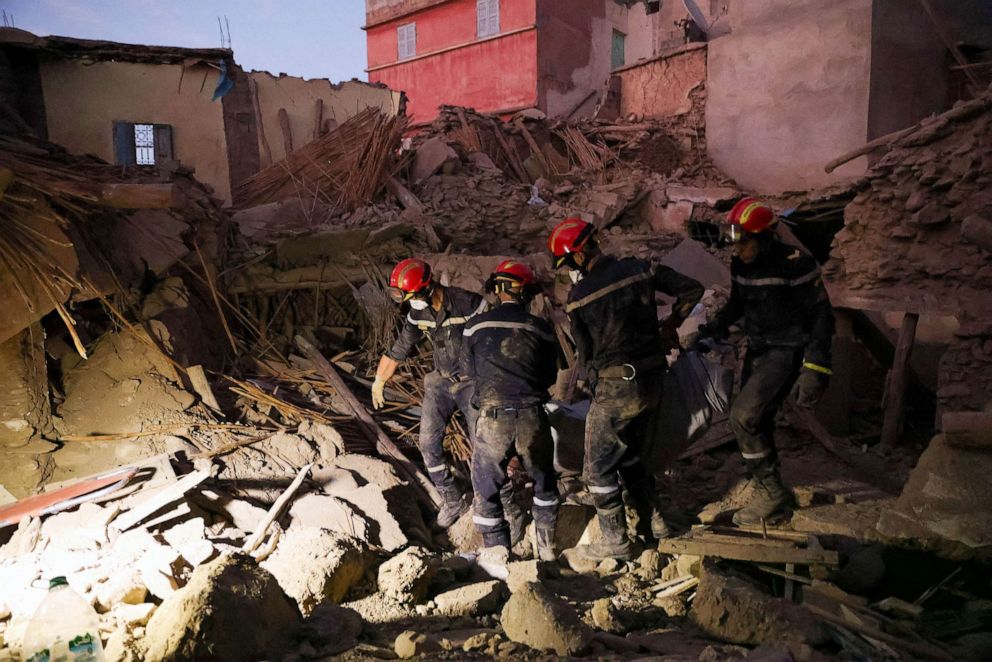Moroccan Earthquake Disaster
"The mountain split in half and started falling. Houses were fully destroyed.""Some people lost all their cattle. We have nothing but the clothes we're wearing.""Everything is gone."Ait Ougadir Al Houcine, Imi N'tala, Morocco"Many people died in my village. Some families have lost 15 relatives. Others 12 or 7.""We especially need tents. What we have is not enough.""People including children are sleeping out in the open air only covered with blankets."Iydouhmad Mohamed, 42, from the remote High Atlas village of Agndiz
 |
| The vehicles transporting the team of rescuers struggle with the steep, winding dirt roads BBC |
Imi N'tala sits high up in the Atlas Mountains of Morocco, devastated after a deadly earthquake struck, that sliced off a chunk of mountain, killing residents of the village, razing the hamlet to the ground. Rescue crews working with bulldozers and Moroccan first responders attempt to dig through the wreckage to unearth corpses trapped within.
The village is home mostly to farmers and herders. There, in Friday's earthquake, 96 residents died, an event mirroring dozens of other villages sitting along the treacherous mountain roads lying south of Marrakech. Survivors dressed in donated clothing arrange prayer rugs over the debris, to perform their daily prayers. People try to block their nostrils in hopes of avoiding the stench of decomposing bodies of both people and animals.
Increasingly the more isolated villages are being reached by rescue teams prepared to dig up bodies, sending the injured to hospitals. A death toll just under 3,000 was reported on Tuesday by Moroccan authorities, but according to the United Nations an estimated 300,000 people were affected by the magnitude 6.8 quake that struck on Friday night.
Some 62 kilometres north in Marrakech blood is being donated. In the villages aid has arrived finally and white and yellow tents have been erected to line the roads. Water bottles and milk cartons are piled nearby. Fellow Moroccans from the larger cities who arrived in the disaster zone busy themselves handing out bags full of food aid off the backs of trucks.
 |
| Few buildings remain in the mountainous village of Douzrou, which had almost 1,000 inhabitants before the quake BBC |
News crews from France, Spain and Qatar set up cameras to record Moroccan emergency responders and crews from Qatar, Spain and international NGOs jackhammer rocks in a recovery of corpses from beneath collapsed dwellings. Mud brick homes common to villages like Imi NTala leave little air for people to breathe, who are trapped in their collapsed homes. Rescue teams hope to find people alive, only to finally recover corpses.
"When we dig, we look for someone alive. From there, we don't ask ourselves questions", stated Patrick Villadry with the French rescue crew ULIS. Recovering the dead is important, he added, for Moroccan families. Still, Moroccan authorities made the decision to limit aid they will permit into the country, green-lighting crews only from four countries; Spain, the United Kingdom, the United Arab Emirates and Qatar, along with non-governmnental organizations.
Among them Villadry's five-person, four-dog crew, representing the few French NGOs to have travelled to the disaster site. The Moroccan government cautioned that poorly coordinated aid "would be counterproductive", while many Moroccans like Brahim Ait Blasri watching the recovery attempts was skeptical: "It's not true. It's politics. We have to set aside our pride. This is too much", he said.
 |
| Emergency workers carry a dead body, in the aftermath of a deadly earthquake, in Amizmiz, Morocco, Sept. 10, 2023. Nacho Doce/Reuters |
Labels: Atlas Mountains, Friday Earthquake, Morocco, Searching for Survivors

<< Home